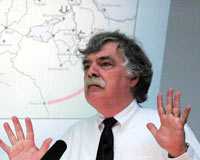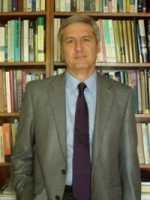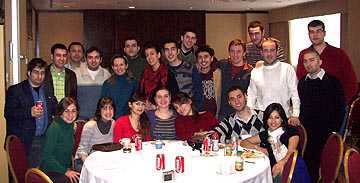By MICHAEL DOYLE
McClatchy Newspapers
WASHINGTON — A nasty, long-running legal battle over a proposed Armenian Genocide Memorial and Museum has ended for now, with a judge returning the valuable downtown Washington, D.C., property to a wealthy philanthropist who said he was wronged.
The 190-page ruling by U.S. District Judge Colleen Kollar-Kotelly is a blow to the Armenian Assembly of America and a victory for retired businessman Gerard L. Cafesjian. Precisely what it means for the proposed museum’s future, though, remains unclear.
“The museum will be built,” Cafesjian’s attorney, John Williams, said Thursday, adding that Cafesjian is “going to reach out to the Armenian community and present a plan for moving forward.” But in a sign of the difficulties ahead, the attorney for the Armenian Assembly of America said he was “disappointed” and stressed that “we have to consider what the net effect” might be on the museum’s future.
“We’re not ruling anything out,” attorney Michael DeMarco said Thursday.
Under the ruling, the museum site several blocks from the White House will be returned to the Cafesjian Family Foundation. A World War II veteran who turns 86 this year, Cafesjian built the foundation with a fortune made by selling West Publishing, a Minnesota-based legal publishing firm.
Cafesjian will also gain control of a seat on the museum board, which must now figure out a new game plan amid sharp disagreements.
The 50,000-square-foot Armenian Genocide Memorial and Museum is supposed to commemorate the horrific events of 1915 to 1923 when, by some accounts, more than 1 million Armenians died at the hands of the Ottoman Empire.
Cafesjian and his foundation had helped buy the former National Bank of Washington site and nearby properties for museum purposes.
“While the court hopes that the properties can be used for (the museum), the court recognizes that the (foundation) is not legally obligated to use the properties to build a museum,” Kollar-Kotelly noted.
Kollar-Kotelly quietly issued her opinion Tuesday night, addressing the complexity of a case that began nearly four years ago and required a 12-day trial and more than 450 exhibits to resolve.
In sometimes pointed terms, Kollar-Kotelly questioned the veracity of some Armenian Assembly trial witnesses, including some, she said, whose “lack of memory seems to be driven more by convenience than cognition.” DeMarco stressed Thursday that the voluminous decision is still being reviewed.
“The decision requires a great deal of thought and analysis,” DeMarco said, adding that “everybody wants the museum to be built.”
The proposed museum got its start in the mid-1990s with several large donations and pledges. In 2000, the Armenian Assembly bought the former National Bank of Washington building for $7.25 million. The Cafesjian Family Foundation provided a $2.5 million grant, and additional help with a loan.
Cafesjian also began buying property near the bank, suggesting he might build an art museum. Instead, he donated these properties as well to the Armenian Assembly.
“The Armenian American community was euphoric about the acquisition of the bank building,” Kollar-Kotelly noted. “However, the real work in creating an Armenian genocide museum and memorial lay ahead.”
At one point, a consultant charging $50,000 a month recommended constructing a $215 million museum that expanded to cover many genocides. The idea sank.
In considerable detail, Kollar-Kotelly spelled out maneuverings and mutual antagonisms that followed. Eventually, the Armenian Assembly accused Cafesjian and his allies of mismanaging museum planning; Cafesjian, in turn, was “surprised by the hostility,” according to Kollar-Kotelly, and a series of wide-ranging suits and countersuits ensued.
A key issue revolved around a “reversionary clause” that returned property to Cafesjian if the museum wasn’t developed by Dec. 31, 2010. Cafesjian won this point. Notably, the judge also awarded attorneys fees to Cafesjian’s side; these could prove to be considerable.
“The court sincerely hopes that after years of fighting legal battles, the parties can put aside their differences and accomplish the laudable goal of creating an Armenian genocide museum and memorial,” Kollar-Kotelly stated.







